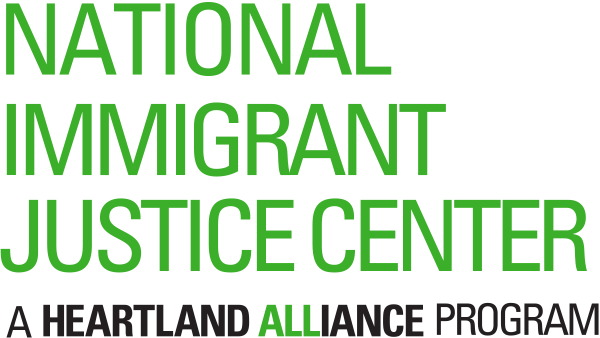WASHINGTON D.C. - The U.S. Supreme Court hears oral arguments today in United States v. Texas, a case that will decide the future of millions of American families living in fear that they could be permanently separated by deportation. Heartland Alliance’s National Immigrant Justice Center (NIJC) is confident that the Court’s ruling, expected in June, will find that the Obama administration’s 2014 immigration executive actions are lawful and allow the programs to proceed. NIJC encourages families to continue to prepare for the programs, in anticipation that they could be implemented as soon as this summer.
“The deferred action programs are practical, legal, and consistent with executive actions taken by prior Republican and Democratic presidents,” said NIJC Executive Director Mary Meg McCarthy. “I am hopeful the Supreme Court ruling will honor America’s immigrant history and uphold our legacy of being a welcoming country to all people.”
The Deferred Action for Parents of Americans (DAPA) program and expansion of the existing Deferred Action for Childhood Arrivals (DACA) program would strengthen our communities by providing temporary relief from fear of deportation for individuals with strong family ties to the United States and, as a result, grow America’s economy by tens of billions of dollars. According to a February 2016 report, the Institute on Taxation and Economic Policy found that DAPA- and DACA-eligible individuals already pay $5.3 billion in state and local taxes every year; that figure would rise to $6.1 billion per year if the Supreme Court rules to unfreeze the programs.
Mario and Evelyn (pseudonyms) are one of the many families NIJC has represented who would be eligible for DAPA. They have lived in the United States without documentation for 26 years and have three U.S. citizen children. Mario was placed in removal proceedings after a fraudulent lawyer wrongly advised him that he was eligible to apply for permanent residence. The Department of Homeland Security terminated Mario’s removal proceedings after finding he was not a priority for deportation, but Evelyn still lives every day in fear she will be ripped from her family. Neither Mario nor Evelyn has a road to lawful status in the United States, but DAPA would allow them to work legally, give more stability to their family, and continue to contribute to the country they have called home for nearly three decades.
While we wait for the Supreme Court’s decision, potentially eligible individuals should continue to gather documents, save money, and schedule legal consultations to determine whether they may be eligible for other more permanent forms of relief. Individuals in Illinois and Indiana may schedule consultations with NIJC by calling (312) 660-1370, emailing immigrantlegaldefense@heartlandalliance.org, or applying online for NIJC’s services. For families outside NIJC’s service area, the Immigration Advocates Network maintains a national list of legal service providers.

